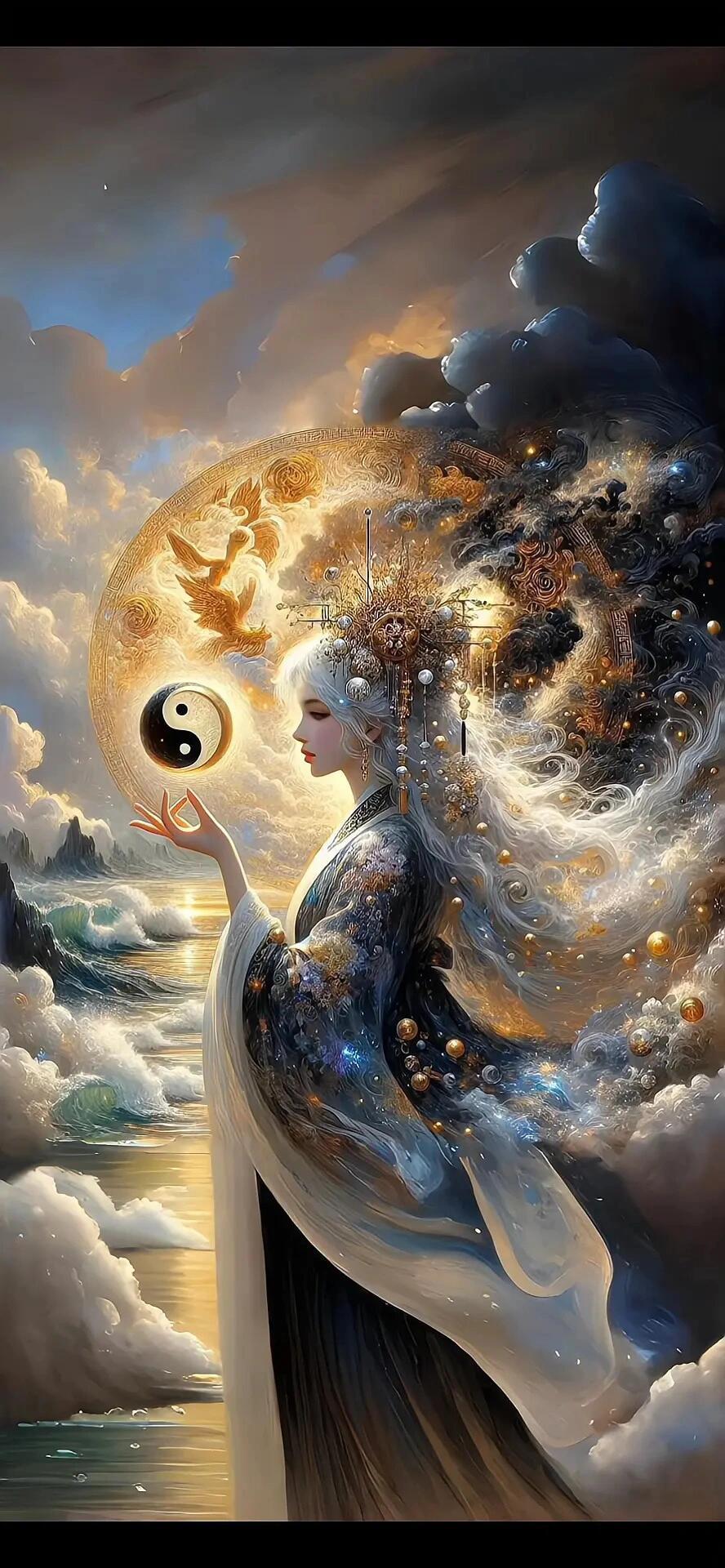In a deep mountain shrouded in clouds and mist stands an ancient and serene Taoist temple. Surrounding the temple are lush forests. The chirping of birds is clear and melodious, as if telling the mysteries of nature. In the temple lives a Taoist priest with profound wisdom and a group of devout disciples seeking the Tao.
One day, the sunlight filtered through the gaps in the leaves and cast patches of light in the courtyard of the Taoist temple. The Taoist priest and the disciples were sitting around in the courtyard, discussing the philosophy of life. Looking at the expectant eyes of the disciples, the Taoist priest smiled slightly and asked, "Do you think a grain of gold is better or a pile of mud?"
The disciples all fell into deep thought. After a moment, a seeker of the Tao couldn't wait to answer, "Of course it's gold! Gold is extremely precious and can be exchanged for many riches and beautiful things. But mud is dirty and smelly and has no value at all." The other disciples also nodded in agreement.
After hearing the seeker's answer, the Taoist priest did not immediately express his opinion. Instead, he continued to ask with a smile, "What if you were a seed?" The seeker was stunned by the Taoist priest's question and fell into deep thought.
At this time, the Taoist priest began to tell a Taoist allusion. "A long, long time ago, there was a man named Zhuang Zhou. Zhuang Zhou dreamed that he had turned into a butterfly and was flying freely among the flowers. After waking up, Zhuang Zhou was lost in thought. He didn't know whether he had dreamed of the butterfly or the butterfly had dreamed of him. This allusion tells us that people are often bound by their own subjective consciousness and forget to look at problems from different angles. Just like this grain of gold and a pile of mud. From a worldly perspective, gold is undoubtedly a better choice. But if we change our perspective and start from the needs of a seed, mud may be a better destination."
The Taoist priest then said, "In Taoist thought, there is an important concept called 'governing by doing nothing'. 'Governing by doing nothing' does not mean doing nothing at all. Instead, it means following the laws of nature and not overly pursuing utilitarianism and material things. If we are always attracted by the brilliance of gold and ignore those seemingly ordinary but indispensable things around us, we will fall into endless troubles and pain. Just like a seed. If it only desires the wealth and glory of gold and is unwilling to be nourished by mud, then it will never take root, sprout, and grow vigorously."
"For another example, there is also a concept in Taoism called 'yin and yang balance'. Everything in the world has two sides of yin and yang, and gold and mud are no exception. Although gold is dazzling, it may also bring greed and strife. Although mud seems humble, it can give birth to life and bring vitality and hope to the world. We should learn to look at things from the perspective of yin and yang balance and not blindly pursue the extreme of one aspect. Only in this way can we truly understand the essence of the world and find inner peace and tranquility."
After listening to the Taoist priest's words, the seeker of the Tao suddenly saw the light. He realized how narrow and one-sided his previous thoughts were. He began to reflect on his life and think about whether he had ignored those truly important things in the process of pursuing wealth and success.
Looking at the thoughtful expression of the seeker of the Tao, the Taoist priest said earnestly, "Children, life is like a journey. We will encounter all kinds of choices and temptations. Sometimes, we need to put down those external material pursuits, return to our inner authenticity, and look for those things that can truly make us feel happy and satisfied. Just like this grain of gold and a pile of mud. In themselves, they have no absolute good or bad. The key lies in how we look at them and how we make the right choice according to our actual situation."
From then on, the seeker of the Tao no longer only pursued material wealth and glory but paid more attention to inner cultivation and growth. He learned to look at problems from different angles and was no longer bound by his own subjective consciousness. He also understood that by changing his state of mind, he might be able to find liberation.
In our lives, we often encounter similar situations. We are always pursuing those seemingly beautiful things but ignoring those truly important things around us. We long for the brilliance of gold but forget the nourishment of mud. We pursue the glory of success but ignore the lessons of failure. We yearn for the bustling city but forget the tranquility of the countryside. However, when we are in difficulties and troubles, can we be like the seeker of the Tao, change our state of mind and look at problems from different angles?
Taoist thought tells us to follow the laws of nature and not overly pursue utilitarianism and material things. We should learn to put down those external desires and pursuits, return to our inner authenticity, and look for those things that can truly make us feel happy and satisfied. Only in this way can we find our own peaceful place in this complex and diverse world and achieve inner liberation and growth.
Let us face everything in life with a peaceful, tolerant, and grateful heart. Don't be deceived by the brilliance of gold and don't underestimate the value of mud. In the journey of life, we should learn to make the right choice according to our actual situation and constantly adjust our state of mind to meet every new challenge and opportunity. Because only when we truly understand the essence of life can we find inner peace and tranquility and embark on the road to a happy life.



